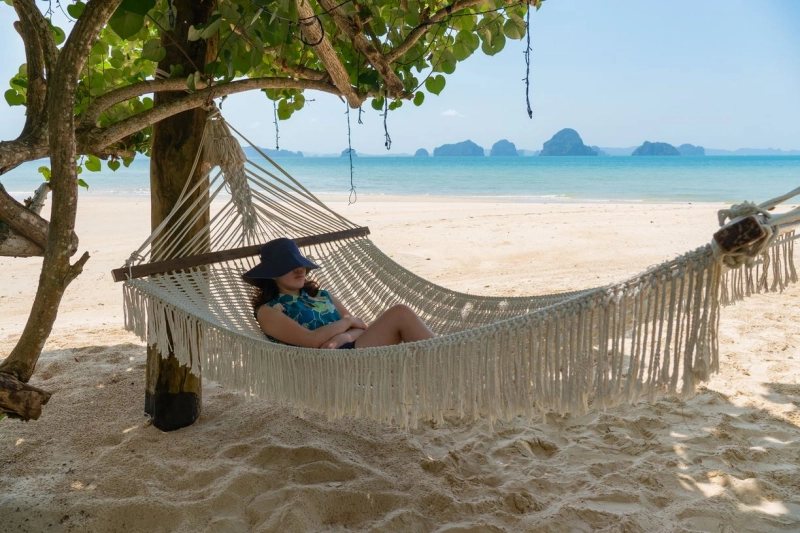As the emphasis on relaxation, quality sleep, and wellness gains momentum, the emerging trend of sleeping tourism is changing the landscape of the travel industry.
Sleep Tourism is a Growing Trend
Sleep tourism is defined as holidays that promote quality sleep. This could involve staying in a sleep retreat or booking a hotel with services like a pillow menu. More people want to prioritize their wellbeing when traveling in our fast-paced, modern world.
McKinsey data reveals that 73% UK consumers place wellbeing as a priority in their travel decisions. ABTA Holiday Habits Survey shows that wellbeing breaks are becoming more popular. 9% of package tourists choose such a holiday.
Interestingly, 43 percent of those who consider wellness-focused vacations want to improve sleep quality while on holiday. The trend of sleep tourism has been born from a desire for people to escape the stress of daily life. In a survey conducted in 2024, 63% of UK citizens experience stress on a weekly basis. This is up from 33%.
The Appeal of Sleep Tourism
Travelers are increasingly interested in sleep tourism, which offers more than just a hotel room. Popularity is growing for accommodations that prioritize sleep and include amenities such as spa experiences or carefully designed environments to promote relaxation.
But not everyone gets enough rest on their vacations. Only 33% of respondents were satisfied with the sleep they received during their previous trip. Sleep quality also affects future accommodation choices.
Sleep tourism is predicted to grow by nearly 8% between 2023-2028. Wellness travel, as a whole, is worth 814 billion dollars and continues to increase.
The Elements of Sleep-Focused Accommodations
Some hotels and retreats have amenities that focus on sleep. These include smart mattresses, smart beds, pillow options, sleep masks, smart lighting, and more. Aromatherapy diffusers release calming scents and teas.
Relaxation Techniques & Off-Grid Holidays
Hotel spas offer a variety of services and activities for guests. Massages, yoga, guided meditation and reflexology are some of the services offered by hotels. Some hotels provide a sleep hypnotist as a service to guests who have trouble falling asleep.
A holiday off-grid, where people disconnect from the technology, is a good way to relax and get back into a normal sleep cycle. These holidays are growing in popularity, as people want to disconnect from digital technology and reconnect themselves.
Top Destinations for Sleep Tourism
Several destinations are designed to enhance sleep experiences. From the peaceful landscapes in Bern, Switzerland, or Lake Como, Italy to the bustling streets of London, UK and New York, US. Hoi An in Vietnam, Rome, Italy, Santorini in Greece, Tallinn, Estonia, and Luxembourg are also sleep tourism hotspots.
Do you want to sleep in a hotel?
Sleep tourism may be the best option for you depending on your travel preferences. Sleep tourism is not for those who spend their holidays out and about. Those who like to relax on vacations may find that sleep tourism is the perfect way to enhance their experience.
Find out more about Skyscanner.


